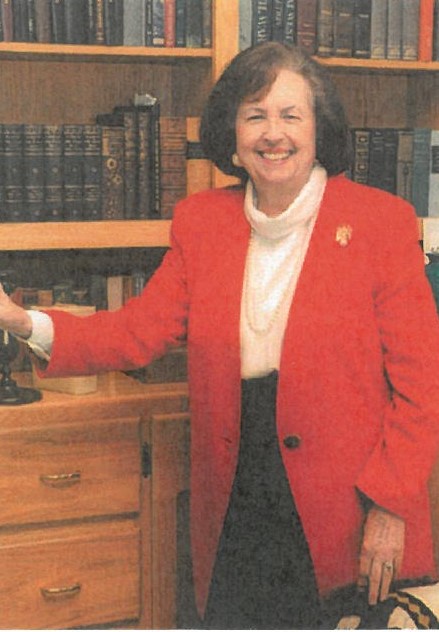
See detailed index below.
NAME: Bethine Church
DATE OF INTERVIEW: 07/06/1993
LOCATION: Boise, ID
INTERVEWER: John Bieter
LANGUAGE: English
TAPE NO:
INDEXED BY: Daniel Chertudi
TAPE
MINUTE SUMMARY OF CONTENTS
Side 1
0-10:30 Bethine’s husband, Senator Frank Church, was asked in 1978 by the Basque National Party’s delegate to the US to attend the first free Easter in Euskadi. Even though he was up for reelection and had just been named chairman of the Foreign Relations Committee, he went, because he had always been opposed to Franco. For many years, Frank had worked as a lawyer, bringing Basque grievances to international attention in courts, and so was never invited to the Spanish embassy in Washington when he was elected until King Juan Carlos was installed. In 1960, the Churches had gone to Africa on a political trip, but stopped in Madrid on the way. No member of the party was received by the Spanish government because of the pad rapport Frank had mustered (which, Bethine quips, allowed her to do the sightseeing she had never been able to do before). When the couple was invited to the Basque Country for Easter, it was the 1st time an American Senator had been there on official business. Because a conference in London had been postponed, the Churches had to skip a visit to Madrid that was supposed to come before the Euskadi trip. Bethine had accidentally worn the Basque colors on the flight over, and was pleased by the large, warm official welcome they received. She describes the trip, which included a parade and a speech at the Tree of Gernika.
10:30-21:00 Never before her 1st visit to the Basque country had Bethine and Franck been so enthusiastically welcomed by so many people. The trip was a big political and security risk for Frank, but he felt so strongly about the plight of the Basques that he knew he had to do it. Bethine said that there was widespread distaste for the Franco regime among Americans, but that the Basque government was also mistakenly viewed as being a terrorist organization. Bethine and her husband were invited to the palace to meet Juan Carlos, and at that point, the ambassador caved in to avoid embarrassment and met with Frank. When the Churches came back to Boise, they were given a big reception by the Basque community, and won a large part of the Basque vote in the next election even though he a democrat (and had been assaulted by the right wing).
21-30:00 Bethine talks about Frank’s activism in the US Senate, including fighting for Civil rights even though it wasn’t a big issue in Idaho at the time. Even though he did a lot or work for the world Basque community, he always wished he could do more. He had been involved in the Burgos trial, which rallied against human rights infringements in Euskadi. Bethine doesn’t think that Frank had many Basque friends in Idaho, but when he was a lawyer, many Basque people in Idaho wrote to him with their problems, and he came to appreciate the culture. He was great at predicting important international political developments, but unfortunately, was rarely consulted by the various presidents.
Side 2
0-16:00 Bethine speaks of Frank’s respect for democracy and how that shaped his political priorities. She describes a visit to the French Basque country on the same official visit, and how sad it was to see a cemetery where all the Basque names had been scratched off the tombstones. The trip lasted only a few days, but they were very full. Even though growing up in Idaho, Frank had not had many Basque friends, he always had a sensitivity to their important cultural presence in the Boise area. When he began helping them, he knew they were mostly conservative, but helped them anyway. Bethine wishes that her husband had stayed in the Senate long enough to push for more reforms that would have helped the Basques. She says that of all the places she and her husband visited all over the world (many times to visit US troops), she had never had as warm a welcome as in Euskadi, where there were no Americans (her husband said to a Basque government official: “I think I’m running in the wrong country!”). He didn’t receive as warm a welcome in Idaho until the Franck Church River of No Return Wilderness Area was named after him as he was dying.
16-30:00 Frank was a politician from the heart, and took many risks (with his wife always at his side) to accomplish his goals. Bethine has not taken any foreign trips since her husband died of cancer, even though she has several friends in Europe who are now in very high political positions and who have invited her over. There are places she’d like to go, but her family is here, and she’s very busy here in Idaho. She reminisces for a while about her husband’s political trips and endeavors. Frank always thought that Communism dominated US and world politics when there were more important things on which to focus. These days, Bethine finds herself involved in local and national politics (she corresponded with President Clinton recently about underground nuclear testing), and in getting speakers for local symposiums. She ends by speaking about a few more political issues, and about the book she hopes to write.
NAMES AND PLACES
NAMES:
Basque Nationalist Party
Carlos, Juan: Spanish king
Church, Frank: US Senator from Idaho and former presidential candidate
Franco, Francisco: Spanish dictator
PLACES:
Boise, ID
Frank Church River of No Return Wilderness Area
Gernika, Spain: stop on Frank’s official visit to the Basque country
Washington, DC
THEMES:
Human Rights
Oppression
Politics